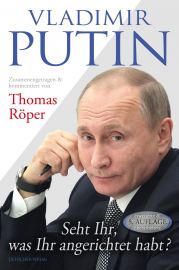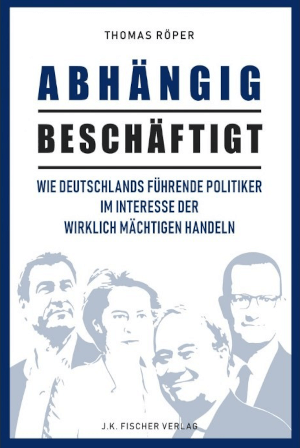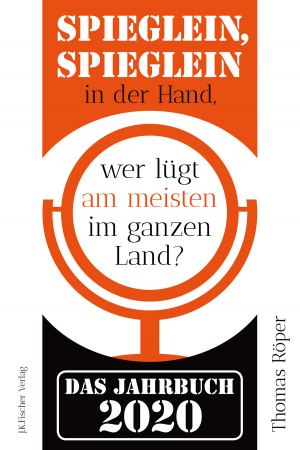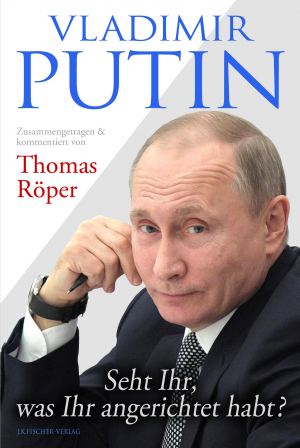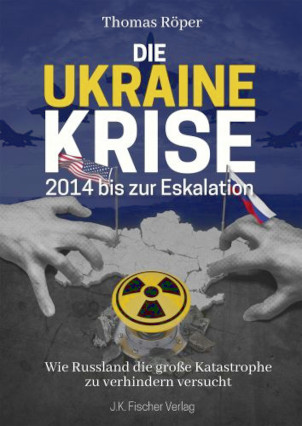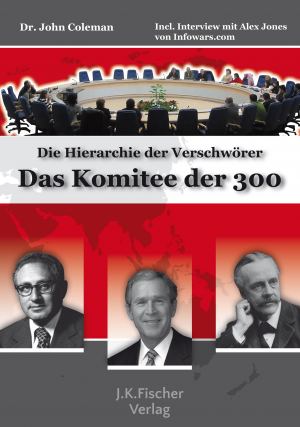UNO zur sozialen Lage in Deutschland: Kinderarmut, Niedriglöhne, Lehrermangel, Pflegenotstand usw.


Deutschland ist ein reiches Land, wird uns immer gepredigt. Aber wenn das stimmt, stellt sich die Frage, warum der Bericht des Sozial- und Wirtschaftskomitees Deutschland so heftig kritisiert. In den Medien gibt es über den Bericht und die Kritik an Deutschland keine Berichte, dort wird das Mantra von dem reichen Deutschland gepredigt, dabei ist der Bericht eine Ohrfeige für die deutsche Politik!
Der UNO-Bericht kritisiert, dass 20% der Kinder in Deutschland in Armut leben, das ist immerhin jedes fünfte Kind in Deutschland. Viele von diesen Kindern gehen hungrig zur Schule, Hunger sollte aber in einem „reichen“ Land nicht vorkommen. Außerdem werden Schwächen bei der Schuldbildung durch massiven Lehrermangel kritisiert.
Auch die Grundsicherung wird als zu niedrig kritisiert, sie reiche in vielen Teilen Deutschland nicht aus, um am sozialen Leben teilzunehmen. Konkret wird von der UNO kritisiert, dass die Berechnungsgrundlage in vielen Teilen Deutschlands zu niedrig ist.
Der Mindestlohn wird zwar vom Bericht begrüßt, gleichzeitig wird kritisiert, dass viele Arbeitgeber trotzdem Löhne unterhalb des Mindestlohnes bezahlen und dass der Staat dagegen nicht ernsthaft vorgeht und noch nicht einmal Zahlen dazu hat, wie oft gegen die Vorschriften des Mindestlohnes verstoßen wird, es gibt laut der UNO dazu keine offiziellen Statistiken.
Besondere Sorgen macht der UNO der wachsende deutsche Niedriglohnsektor. Laut UNO arbeiten im Niedriglohnsektor 14 Millionen Menschen, außerdem sind 1,2 Millionen Menschen trotz Arbeit auf staatliche Zuschüsse angewiesen. Das sind fast 20% der deutschen Bevölkerung, die trotz Arbeit in Armut leben. Arbeitslose und Hartz4 Empfänger hinzu gerechnet, bedeutet das, dass mindestens jeder vierte in Deutschland als arm bezeichnet werden muss.
Aber auch Verstöße gegen elementare Menschenrechte sieht der Bericht. So gäbe es ein Problem beim Recht auf Wohnraum in Deutschland. Viele Arme könnten sich das Wohnen nicht mehr leisten und werden in die Obdachlosigkeit getrieben, während die Zahl der Sozialwohnungen sinkt. Gemäß dem UNO-Bericht steigt die Zahl der Menschen, die „keinen Zugang zu adäquatem Wohnraum“ haben in Deutschland und liegt derzeit bei 1,2 Millionen!
Gleiches gilt für das Recht auf Elektrizität. Laut der UNO leben 328.000 in Deutschland ohne Strom, weil sie zu wenig Geld haben, die Stromrechnung zu bezahlen.
Auch der Pflegenotstand wird kritisiert, viele pflegebedürftige Menschen bekämen in Deutschland nicht die nötige Pflege.
Wenn man all dies liest, und das sind längst nicht alle Kritikpunkte der UNO, dann fragt man sich schon, wie die Medien und die Politik immer wieder das Mantra vom „reichen“ Deutschland predigen. Auch der DGB hat kürzlich in einer Studie aufgezeigt, dass in Deutschland die Armut wächst und dass es in Deutschland seit 30 Jahren de facto keine Erhöhung der Reallöhne gegeben hat.
Auf die Kritik der UNO angesprochen, hatte die Regierung auf der Bundespressekonferenz wenig zu sagen, außer dass alles gemäß den geltenden Gesetzen und Regelsätzen ablaufe. Stimmt, aber genau diese werden von der UNO als zu niedrig kritisiert, worauf die Regierung nicht einging.
Der Bericht im Wortlaut:
Committee on Economic, Social and Cultural Rights
Concluding observations on the sixth periodic report of Germany*
1. The Committee on Economic, Social and Cultural Rights considered the sixth periodic report of Germany on the implementation of the International Covenant on Economic, Social and Cultural Rights (E/C.12/DEU/6) at its 31st and 32nd meetings (E/C.12/2018/SR.31 and 32) held on 25 September 2018, and adopted the following concluding observations at its 58th meeting, held on 12 October 2018.
A. Introduction
2. The Committee welcomes the sixth report submitted by the State party and the supplementary information provided in the replies to the list of issues (E/C.12/DEU/Q/6/Add.1). The Committee also appreciates the constructive dialogue held with the State party’s high-level inter-ministerial delegation.
B. Positive aspects
3. The Committee welcomes the legislative, institutional and policy measures taken to ensure a high level of protection of economic, social and cultural rights in the State party, in particular, the introduction of a national minimum wage in 2015 through the enactment of the Act to Regulate a National Minimum Wage (Mindestlohngesetz – MiLoG).
C. Principal subjects of concern and recommendations
Ratification of the Optional Protocol to the International Covenant on Economic, Social and Cultural rights
4. The Committee welcomes the statement of the delegation of the State party that the German authorities aim to ratify the Optional Protocol to the International Covenant on Economic, Social and Cultural Rights, and it encourages the State party to expedite ratification.
State party’s obligation in the context of the federal system
5. While noting that the federal system of the State party confers powers and responsibilities, particularly those relating to the realization of the Covenant rights, to the states (Länder), the Committee is concerned that the significant disparities in the enjoyment of economic, social and cultural rights, inherited from the division of Germany before 1990, continue to persist in spite of determined efforts of the State party to overcome them. The Committee is also concerned about insufficient information and data regarding the implementation of economic, social and cultural rights in some Länder.
6. The Committee recalls that decentralization by no means reduces the overall responsibility of the State party for fulfilling its obligations under the Covenant (article 27 of the Vienna Convention on the Law of Treaties), as the primary duty-bearer. The Committee recommends that the State party undertake further steps with a view to enabling all people, regardless of their place of residence, to enjoy the Covenant rights in order to reduce existing disparities, including through close monitoring by the federal Government of their implementation. The Committee also recommends that the State party improve its data collection system to enable the timely collection of reliable data on the enjoyment of Covenant rights in all Länder.
Business and human rights
7. While welcoming the adoption of the German National Action Plan on Business and Human Rights (NAP), the Committee is concerned at the exclusively voluntary nature of the corporate due diligence obligations set out in the NAP regarding respect for human rights and the lack of monitoring mechanisms in this regard. It is particularly concerned at the fact that the State party would introduce binding legislative measures only if less than 50 percent of all enterprises based in Germany with more than 500 employees have introduced human rights standards into their business processes. This may in effect lead to a regulatory gap for the imposition of corporate due diligence obligations even as a large proportion of corporations have not incorporated such obligations in their business activities.
8. The Committee recommends that the State party ensure the effective implementation of the NAP by all stakeholders, through a comprehensive and transparent monitoring process. It also recommends that the State party adopt a regulatory framework that ensures that all companies domiciled in the State party or under its jurisdiction identify, prevent, and address human rights abuses in their operations in not only Germany but also abroad and that they can be liable for violations.
9. The Committee is concerned at: (a) the practical obstacles impeding access to justice in the State party by non-nationals whose rights have allegedly been violated by German companies abroad, despite the fact that German law provides for their access to justice as well as legal aid; (b) the absence of collective redress mechanisms in the Code of Civil Procedures other than for the protection of consumers’ claims; (c) the lack of the criminal liability of corporations under German law; and (d) the lack of disclosure procedures, which makes it extremely difficult for claimants to prove the violation of their rights by an act of a company.
10. The Committee recommends that the State party take measures, including the enhanced legal assistance for victims, and the introduction of collective redress mechanisms in civil proceeding, the criminal liability of corporations and disclosure procedures to guarantee that the victims of human rights abuses by companies domiciled in Germany or under Germany’s jurisdiction have access to effective remedies and compensation in Germany.
11. The Committee draws the attention of the State party to its general comment No. 24 on State Obligations under the International Covenant on Economic, Social and Cultural Rights in the Context of Business Activities (E/C.12/GC/24).
Human rights and international trade and investment agreements
12. The Committee is concerned that the State party does not carry out human rights impact assessments in relation to agricultural exports to poor, food deficit countries, in the absence of relevant provisions in the European Union (EU) Common Agricultural Policy (CAP). It is particularly concerned that, even taking into account the phasing out of export subsidies, exports of foodstuffs to developing countries may have negative impacts on the livelihoods of small farmers in these countries
13. The Committee recommends that the State party ensure that human rights impact assessments are carried out to assess the overall impact of agricultural exports to developing countries in order to ensure compliance with its Covenant obligations on international assistance and cooperation. It also recommends that the State party make every effort to bring about the amendment of the EUCAP regulations in line with the obligations of EU Member States that have ratified the Covenant. It further recommends that the State party make every effort to bring about a reform of the European Union’s Common Agricultural Policy (CAP) in order to ensure that food exports to developing countries shall not threaten the viability of the farming sector in these countries, and are consistent with the efforts of these countries to rebuild local food systems and invest in local food production. This requires a close monitoring of the impacts of such exports.
14. The Committee is concerned at the data exclusivity provisions imposed on developing countries by the EU Preferential Trade Agreements (EU-PTAs), which delays access to affordable generic drugs for persons in these countries, with harmful impacts on their right to health.
15. The Committee recommends that the State party carry out human rights impact assessments prior to commencement of EU-PTAs negotiations, in order to ascertain the impact of data exclusivity provisions on access to affordable generic drugs in the developing countries. It also recommends that the State party make every effort to bring about the amendment of EU procedures to incorporate provisions for human rights impact assessments prior to commencing PTA negotiations with developing countries. The Committee draws the attention of the State party to its general comment No. 14 (2000) on the right to the highest attainable standard of health (para. 39).
Obligations of a State party under the Covenant as a State member of international financial institutions
16. The Committee regrets that the State party, as a State member of international financial institutions, such as the International Monetary Fund and the European Stability Mechanism, has not sufficiently exercised its great leverage to ensure that the conditionalities that these institutions attach to a loan do not result in unjustified retrogression in the enjoyment of Covenant rights in borrowing States.
17. The Committee recommends that the State party make every effort to exercise its great leverage to ensure that all international financial institutions, to which it is a State member, ensure that the conditionalities attached to a loan do not lead borrowing States to violate their obligations under the Covenant. In particular, these conditionalities should not lead to the adoption of unjustified retrogressive measures, the violation of core obligations required by the Covenant, or have a disproportionate impact on marginalized individuals and groups. In this regard, it also recommends that the State party ensure that the international financial institutions of which it is a member to carry out a human rights impact assessment prior to the provision of the loan to this end. The Committee draws the attention of the State party to its statement on public debt, austerity measures and the International Covenant on Economic, Social and Cultural Rights (E/C.12/2016/1) and the Letter by the Chairperson of the Committee on austerity measures of 16 May 2012.
Climate change
18. The Committee regrets that the State party is not on course to meet its greenhouse gas emission (GHG) reductions for 2020, while noting its domestic commitment to ensuring compliance with its 2030 target of reducing emissions by 55 percent compared to 1990 levels.
19. The Committee recommends that the State party intensify its efforts to reach its GHG emission targets for 2020 and that it comply with its obligations under article 4(16) of the Paris Agreement by submitting its 2030 target as its Nationally Determined Contribution.
Official development assistance
20. The Committee notes that the State party’s official development assistance (ODA) reached the international agreed target of 0.7 percent of gross national income (GNI) in 2016, due to the inclusion in this calculation of the costs of accommodating asylum-seekers and migrants in search of international protection. The Committee also regrets that it fell short of the commitment in the following year. (art. 2(1))
21. The Committee calls on the State part to step up its efforts to meet the ODA commitment consistently in future years. (art. 2(1))
Discrimination in church-run institutions
22. The Committee is concerned at the repeated reports of discrimination based on religious belief, or sexual orientation and gender identity in employment of non-ecclesiastic positions in church-run institutions, such as schools and hospitals. (arts. 2(2) and 6)
23. The Committee recommends that the State party review the General Equal Treatment Act, particularly Sections 8 and 9, to ensure that no discrimination is permitted against non-ecclesiastical employees on grounds of religious belief, or sexual orientation or gender identity.
Intersex children and transgender persons
24. The Committee welcomes the decision of the Federal Constitutional Court of 10 October 2017 concerning the third gender. The Committee is, however, concerned that gender confirmation surgery continues to be performed on intersex infants and children since the adoption of the Law on Amendments to the Civil Status Act and at the life-long devastating consequences of the surgery on their mental, physical and psychological health and well-being. It is also concerned that gender laws (Transsexuellengesetz) of the State party pathologize transgender status. (arts. 2(2) and 12)
25. The Committee recommends that the State party take necessary measures to prohibit medically unnecessary gender confirmation surgery of intersex infants and children and to provide an enabling environment in which they can develop and be respected for their preferred gender identity. It also recommends that the State party revise its gender laws in accordance with international human rights standards and best practice.
Migrants
26. The Committee is concerned that Section 87(2) of the Residence Act (Aufenthaltsgesetz) obliges public authorities to report undocumented migrants to immigration authorities that can deter irregular migrant workers from seeking services that are essential for the enjoyment of their rights, such as healthcare, and from reporting crimes, including domestic violence and sexual and gender-based violence. (arts. 2(2), 12 and 13)
27. The Committee recommends that the State party establish a clear separation (“fire walls”) between public service providers and immigration enforcement authorities, including through repealing Section 87(2) of the Residence Act, to ensure that irregular migrant workers access basic services without fear.
Family reunification of refugees and persons under subsidiary protection
28. The Committee appreciates the efforts made by the State party to host a large number of refugees and other migrants forced to flee their countries. However, the Committee notes with concern that the family reunification for persons entitled to subsidiary protection, which is possible since 2015, suspended between March and July 2018 and reinstated since, remains subject to a quota of 1,000 persons per month, although exceptions are allowed for humanitarian reasons. It is also concerned at the lack of clarity on the procedures and criteria to implement the new regulations. It is further concerned that, under the State party’s legislation, unaccompanied minors with refugee status are expected to guarantee the means of subsistence and accommodation for the entire family in case of family reunification with their minor siblings coming with parents. This leads to an increased number of rejections or deters family reunification. (arts. 2(2) and 10)
29. The Committee recommends that the State party ensure that persons entitled to subsidiary protection are allowed to reunite with their families, including by lifting the quota of 1,000 persons per month. It also recommends that the State party improve its family reunification process, by providing streamlined and clear procedures and criteria for such reunification; and reducing practical and administrative barriers to family reunification; and allow both parents and siblings to reunite without hurdles when an unaccompanied minor who is the first family member arriving in the host State acts as the sponsor.
Women’s representation in decision-making positions
30. The Committee is concerned at the low representation of women in decision-making positions, particularly in the private sector, and at the ineffectiveness of the Act on the Equal Participation in this regard. It is concerned, in particular, that: (a) the statutory 30 % gender quota for supervisory boards, provided for in the Act, covers only 108 companies; (b) a majority of those companies that are obliged to set targets for gender quotas under the Act have not done so; and (c) sanctions for non-compliance are not effective. (art.3)
31. The Committee recommends that the State party intensify its efforts to increase women’s representation in decision-making positions, and in particular to: (a) expand the scope of the statutory 30 percent gender quota for executive boards and higher management positions to all listed or co-determinated private companies; (b) fully enforce and, if necessary, strengthen the sanctions for non-compliance; and (c) provide private companies with strong incentives to further gender equality and combat gender-based discrimination and stereotypes.
Prevalence of precarious employment
32. The Committee is concerned at the very large number of people working in various forms of precarious employment such as mini-jobs, temporary agency work, part-time employment, subcontracted employment, short-term service contracts and fixed-term employment, estimated at 14 million. These workers receive low wages, have a low level of social protection, and have weakened bargaining power. The Committee is further concerned at the rising number of workers depending on social benefits, currently at 1.2 million, and that only a small proportion of workers manage to move from precarious employment to regular employment. (arts. 6 and 7)
33. The Committee recommends that the State party step up its efforts to create decent jobs, and to regularize precarious employment, by providing employers with incentives and workers with up-skill training to improve their qualifications and other forms of support, such as care services for children and dependent adults, to support them to take up full-time jobs, bearing in mind that a majority of these workers are women. It also recommends that the State party ensure that labour and social security rights of these workers are fully guaranteed in law and in practice and that the legislation on minimum wage is enforced.
Employment of persons with disabilities
34. The Committee is concerned at the inadequate level of compliance with the quota of five percent for the employment of persons with severe disabilities and at the high incidence of unemployment among persons with disabilities, particularly women with disabilities. It is also concerned at the increasing number of persons with disabilities working in sheltered workshops, who are provided with limited labour and social protection and do not benefit from the legislation on minimum wage, and at the low rate of transition from sheltered workshops to the open labour market. (arts. 2(2) and 6)
35. The Committee recommends that the State party intensify its efforts to ensure the full compliance with the quota for the employment of persons with severe disabilities, particularly including women with disabilities, and strengthen the sanctions for non-compliance. It also recommends that the State party ensure that workers in sheltered workshops are covered fully by labour and social protection, including the national minimum wage, and that it takes effective measures to facilitate the transition of workers with disabilities from sheltered workshops to the open labour market.
Minimum wage
36. The Committee welcomes the introduction of a national minimum wage, which is currently set at 8.50 euros and adjusted every two years. It is, however, concerned that the State party does not have reliable data on the compliance with the minimum wage and that a significant number of workers are reportedly paid below the minimum wage. (art.7)
37. The Committee recommends that the State party intensify its efforts to ensure that all workers are paid at least the national minimum wage and that the minimum wage is set at a level sufficient to provide workers and their families with an adequate standard of living; and to strengthen the enforcement of the minimum wage. The Committee draws the attention of the State party to its general comment No. 23 (2016) on the right of everyone to the enjoyment of just and favourable conditions of work, para. 23.
Gender pay gap
38. The Committee is concerned that the gender pay gap remains high at 21 percent in 2018, mostly due to the persistent vertical and horizontal de facto segregation as well as the predominant proportion of women in precarious employment. It is also concerned that this leads to a wide gender pension gap (which currently stands at 53%) as well as to a disproportionately high incidence of poverty among older women. (arts.3, 7, 9 and 11)
39. The Committee recommends that the State party intensify its efforts to close the gender pay gap, including by (a) addressing the vertical and horizontal de facto segregation; and by (b) reviewing its social and tax policies, with a view to addressing the factors that discourage women to continue their career or to take up full-time employment. Moreover, the Committee urges the State party to take targeted measures to address the high incidence of poverty among older women.
Occupational safety and health
40. The Committee is concerned at the insufficient number of labour inspections conducted in the agricultural sector as well as in small workplaces, and at the high number of fatal occupational accidents in the sector. (art.7)
41. The Committee recommends that the State party intensify its efforts to prevent occupational accidents and diseases, in particular by strengthening labour inspection in the agricultural sector as well as in small workplaces.
Domestic workers
42. While noting that approximately 163,000 caregivers, primarily women migrant workers, are employed in private households in Germany, the Committee is concerned that they are required to work excessive hours without regular rest, and are vulnerable to exploitation; that labour inspections are insufficient; and that these workers have access to limited and fragmented complaint mechanisms. (art.7)
43. The Committee recommends that the State party ensure that domestic workers, mainly employed as caregivers, enjoy the same conditions as other workers as regards remuneration, protection against unfair dismissal, rest and leisure and limitation of working hours and to protect them from exploitation and abuse. It further recommends that the State party improve the complaint mechanisms so as to make them easily accessible to these workers and ensure effective inspection mechanisms to monitor their conditions of work. The Committee draws the attention of the State party to its general comment No. 23 (2016) on the right of everyone to the enjoyment of just and favourable conditions of work, para. 47(f).
The right to strike of civil servants
44. The Committee remains concerned about the prohibition by the State party of strikes by all public servants with civil servant status, including schoolteachers with this status. This goes beyond the restrictions allowed under article 8 (2) of the Covenant, since not all civil servants can reasonably be deemed to be providers of an essential service. (art. 8)
45. The Committee reiterates its previous recommendation that the State party take measures to revise the scope of the category of essential services with a view to ensuring that all those civil servants whose services cannot reasonably be deemed as essential, are entitled to their right to strike in accordance with article 8 of the Covenant and ILO Convention No. 87 concerning Freedom of Association and Protection of the Right to Organise (1948).
Social security
46. The Committee is concerned that the level of basic social benefits is not sufficient to allow recipients and their families to enjoy an adequate standard of living. It is also concerned at the calculation method of the subsistence level, which is based on a sample survey of the expenditure of lowest-income households and excludes some of the basic costs. It is further concerned at the sanctions imposed on recipients of basic security provision (Grundsicherung) for jobseekers under the Social Code Book II, which cut the benefits by 30 to 100 percent and particularly affect young people, whose benefits are removed entirely if they are found to have breached their duties (Pflichtverletzung). It also reiterates its concern at the definition of what is considered as “suitable” employment, which job-seekers are expected to accept. (arts. 6, 9 and 11)
47. The Committee recommends that the State party increase the level of basic social benefits by improving the calculation methods of the subsistence level, in light of the judgment of the Federal Constitutional Court of 23 July 2014. It also urges the State party to review the sanctions regime in order to ensure that the subsistence minimum shall always be applied. It further recommends that the State party expressly define criteria for assessing the suitability of employment in line with article 21(2) of ILO (No. 168) Employment Promotion and Protection against Unemployment Convention, 1988. The Committee draws the attention of the State party to its general comment No. 19 (2008) on the right to social security.
Care services for older persons
48. While welcoming the decision to create 13,000 new caretaker positions in hospitals, the Committee is concerned at the chronic shortage of qualified caretakers for older persons in the State party. It reiterates its concern at the situation of older persons living in degrading conditions, including in some nursing homes, and who receive inadequate care due to a shortage of qualified caretakers. (arts. 10 and 12)
49. The Committee recommends that the State party intensify its efforts to secure a sufficient number of qualified caretakers for older persons, in accordance with the WHO Global Code of Practice on the International Recruitment of Health Personnel, and ensure that they enjoy just and favourable conditions of work. It also reiterates its previous recommendations that the State party take immediate steps to improve the situation of older persons in nursing homes; allocate the necessary resources to train nursing care personnel; conduct more frequent and thorough inspections of nursing homes. The Committee draws the attention of the State party to its general comment No. 6 on the economic, social and cultural rights of older persons (1995).
Child poverty
50. The Committee is concerned that 19.7 percent (2.55 million) of children under the age of 18 are living in poverty, a majority of whom are children living with a single parent or in families with two or more siblings. It is also concerned that the level of child benefits remains insufficient to meet their basic needs. It is further concerned at reports that some parents, including migrant parents, do not apply for child benefits due to bureaucratic hurdles or a lack of information about benefits and that the State party does not effectively assess the reasons for non-take up of benefits. (arts. 9 and 10)
51. The Committee recommends that the State party continuously review the adequacy of the child benefit schemes, including standard child benefits, supplementary child allowances and the education and participation package, with a view to eradicating child poverty. It also recommends that the State party collect data on child benefits schemes, including take-up rates, and take the measures necessary to address the difficulties faced by eligible households in accessing the benefits.
Nutrition of school children
52. The Committee is concerned that, despite measures taken in this regard, many children still go to school without breakfast. (arts. 10 and 11)
53. The Committee recommends that the State party ensure that children are provided with school meals, as necessary, while further sensitising parents and children about the need for appropriate nutrition and providing families with support in this regard.
Right to housing
54. While noting the announcement that the budget allocation to social housing would be increased in the future, the Committee is concerned at the very high level of rents and rent increases; the acute shortage of affordable housing, coupled with the decreased number of social rental apartments; and the decreasing and low level of public spending on housing. It is particularly concerned at the very low threshold for housing reimbursement in the basic social benefits, which has led many families on basic social benefits in metropolitan areas to cut down other basic expenses to pay rent or in some cases rendered them homeless. It is further concerned at reports that the number of persons lacking adequate housing has constantly increased, reaching 1.2 million. The Committee regrets the absence of official data on the prevalence of homelessness and the lack of shelters to accommodate homeless persons. (arts. 9 and 11)
55. The Committee recommends that the State party:
(a) Increase the provision of affordable housing units, especially for the most disadvantaged and marginalized individuals and groups;
(b) Continue to increase the level of public funding on the housing sector;
(c) Increase the threshold for housing reimbursement under the basic social benefits to meet the market price;
(d) Reduce the level of homelessness and ensure adequate provision of reception facilities, including emergency shelters and hostels, as well as social rehabilitation centres;
(e) Collect data, disaggregated by gender, ethnicity and other relevant criteria, on the scope and the extent of homelessness in the State party and establish an effective means of monitoring the situation of homelessness;
(f) Take appropriate measures to counteract the impact of speculation in urban residential accommodation on access to affordable housing.
Access to electricity
56. The Committee is concerned at reports that a large number of households, particularly those on basic social benefits, are subject to energy poverty and that 328,000 households were affected by power shutdowns in 2016 due to unpaid bills. (art. 11)
57. The Committee recommends that the State party adopt effective measures to ensure that all households meet their basic electricity needs, thus avoiding power shutdowns to households that are unable to pay for their minimum needs.
Right to health
58. The Committee is concerned thatunder the Act on Benefits for Asylum Applicants, asylum-seekers’ access to healthcare is restricted to acute and painful conditions for the first 15 months of their stay in Germany and that their access to health is further limited due to the lack of clear definition of or guidelines on“other essential healthcare services”, which, under the Act, are provided in exceptional cases, as well as on the acute and painful conditions. (art. 12)
59. The Committee recommends that the State party take all measures necessary to ensure that all persons in the State party, including asylum-seekers , have equal access to preventive, curative and palliative health services, regardless of their legal status and documentation and review the Law to Regulate Claims of Foreign Persons for Basic Provision of Job-seekers and the Act on Benefits for Asylum Applicants accordingly. The Committee draws the attention of the State party to its statement on Duties of States towards refugees and migrants under the Covenant (E/C.12/2017/1).
Right to education
60. While acknowledging the efforts made by the Länder and municipalities to improve access to education, the Committee is concerned at the persisting challenges in the education sector, in particular:
(a) The nation-wide shortage of teachers, which has an impact on the availability, accessibility and quality of education;
(b) The continuing high number of students with disabilities in special schools rather than integrated in the normal school system;
(c) The obstacles refugee and asylum-seeking children face in having access to education, which vary considerably from Land to Land and from municipality to municipality. (arts. 13 and 14).
61. The Committee recommends that the State party:
(a) Secure a sufficient number of trained and qualified teachers and ensure that those who fill the gaps as an interim measure are adequately trained and certified before assigning them to schools;
(b) Continue to roll out the inclusive education programme and encourage children with disabilities and their parents to enrol in inclusive education;
(c) Continue its efforts to ensure that refugee and asylum-seeking children start their education as soon as possible upon arrival in the country and ensure equal and quality education for them across the country.
D. Other recommendations
62. The Committee recommends that the State party consider ratifying the International Convention on the Protection of the Rights of All Migrant Workers and Members of Their Families.
63. The Committee recommends that the State party take fully into account its obligations under the Covenant and ensure the full enjoyment of the rights enshrined therein in the implementation of the 2030 Agenda for Sustainable Development at the national level. Achievement of the Sustainable Development Goals would be significantly facilitated by the State party establishing independent mechanisms to monitor progress and treating beneficiaries of public programmes as rights holders who can claim entitlements. Implementing the Goals on the basis of the principles of participation, accountability and non-discrimination would ensure that no one is left behind.
64. The Committee recommends that the State party take steps to progressively develop and apply appropriate indicators on the implementation of economic, social and cultural rights, in order to facilitate the assessment of progress achieved by the State party in complying with its obligations under the Covenant for various segments of the population. In that context, the Committee refers the State party to, inter alia, the conceptual and methodological framework on human rights indicators developed by the Office of the United Nations High Commissioner for Human Rights (see HRI/MC/2008/3).
65. The Committee requests that the State party disseminate the present concluding observations widely at all levels of society, including at the national, provincial and municipal levels, in particular among parliamentarians, public officials and judicial authorities, and that it inform the Committee in its next periodic report about the steps taken to implement them. The Committee encourages the State party to engage with the German Institute for Human Rights, non-governmental organizations and other members of civil society in the follow-up to the present concluding observations and in the process of consultation at the national level prior to the submission of its next periodic report.
66. In accordance with the procedure on follow-up to concluding observations adopted by the Committee, the State party is requested to provide, within 24 months of the adoption of the present concluding observations, information on the implementation of the recommendations contained in paragraphs 49 (relating to care services for older persons), 51 (relating to child poverty) and 55 (b) and (c) (relating to the right to housing).
67. The Committee requests the State party to submit its seventh periodic report, to be prepared in accordance with the reporting guidelines adopted by the Committee in 2008 (E/C.12/2008/2), by 31 October 2023. In addition, it invites the State party to update its common core document, as necessary, in accordance with the harmonized guidelines on reporting under the international human rights treaties (see HRI/GEN/2/Rev.6, chap. I).
* Adopted by the Committee at its sixty-fourth session (24 September–12 October 2018).
In meinem neuen Buch „Das Ukraine Kartell – Das Doppelspiel um einen Krieg und die Millionen-Geschäfte der Familie des US-Präsidenten Biden“ enthülle ich sachlich und neutral, basierend auf Hunderten von Quellen, bisher verschwiegene Fakten und Beweise über die millionenschweren Geschäfte der Familie des US-Präsidenten Joe Biden in der Ukraine. Angesichts der aktuellen Ereignisse stellt sich die Frage: Ist eine kleine Gruppe gieriger Geschäftemacher möglicherweise bereit, uns für ihren persönlichen Profit an den Rand eines Dritten Weltkriegs zu bringen?
Das Buch ist aktuell erschienen und ausschließlich direkt hier über den Verlag bestellbar.
Hier geht es zum neuen BuchNächster Beitrag: Lust auf ein interessates Fernsehprogramm heute Abend? Hier mein Tipp



